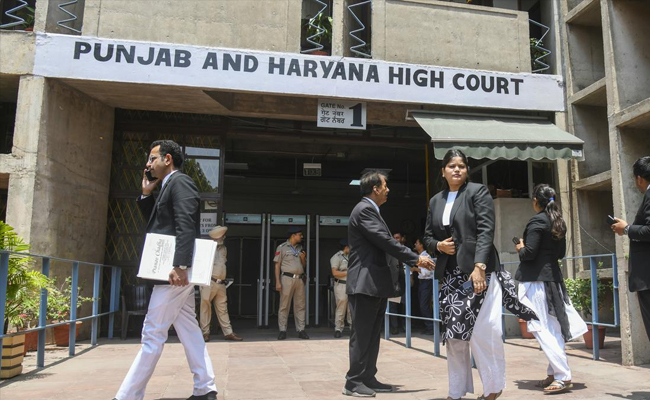Ranchi, Dec 21: The Jharkhand Assembly Tuesday passed a bill to prevent mob violence and lynching in the state notorious for vigilante justice, with the proposed law providing for punishment ranging from three years in jail to life imprisonment.
The Prevention of Mob Violence and Mob Lynching Bill, 2021, was passed by a voice vote despite opposition by the BJP.
Jharkhand became the third state in the country after West Bengal and Rajasthan to pass such a legislation.
The Bill envisages imprisonment for those pronounced guilty of mob violence and lynching for periods ranging from three years to life term, besides fine and attachment of property. Those held responsible for sharing information in an irresponsible manner will also be punished.
It provides for fine and imprisonment of up to three years for those creating a "hostile environment", the definition of which includes threatening or coercing the victims, their family members and witnesses or any person providing assistance to them. It also envisages financial compensation to the victim's family and free medical treatment of victims of mob violence and mob lynching.
The Bill will be now be sent to the governor for his assent.
Tabling the Bill in the House, Parliamentary Affairs Minister Alamgir Alam said its main objective is to provide "effective security" to people, protect their constitutional rights and prevent mob violence.
During the debate on the Bill, the main opposition BJP introduced several amendments which were rejected by voice vote.
BJP leader C P Singh accused the state government of bringing the legislation "in a hurry to appease the minorities".
The state has seen many incidents of mob violence, but the lynching of 24-year-old Tabrez Ansari in 2019 triggered a nation-wide outrage after videos showed him tied to an electric pole as a crazed crowed beat him up in Seraikela Kharsawan district on suspicion of theft on June 17. He kept begging for his life in vain. Ansari died five days later in a Jamshedpur hospital.
There have also been innumerable incidents of mob lynching of those suspected of practising witchcraft in the tribal state.
Chief Minister Hemant Soren had denounced incidents of mob violence and promised to bring a legislation against it ahead of the 2019 state Assembly election.
Earlier this year, the Jharkhand Mukti Morcha-led government had decided to set up district-level committees to deal with cases of mob violence and lyching after being rebuked by the high court.
Let the Truth be known. If you read VB and like VB, please be a VB Supporter and Help us deliver the Truth to one and all.
Chandigarh (PTI): The cow is a pious animal and "certain acts" can severely impact peace when they offend beliefs of a "significant population group", the Punjab and Haryana High Court has said while dismissing the anticipatory bail given to a Nuh resident accused of transporting cows for slaughter.
Asif was booked along with two others in April this year under the Haryana Gauvansh Sanrakshan and Gausamvardhan Act, 2015, and the Prevention of Cruelty Act, 1960, for allegedly transporting cows to Rajasthan for slaughter.
"The present offence, apart from its legal implications, is laden with emotional and cultural undertones, given the unique status of the cow in Indian society," Justice Sandeep Moudgil said in an order earlier this month. It was made public on Monday.
"This court cannot remain oblivious to the fact that in a pluralistic society like ours, certain acts, while otherwise private, can have severe repercussions on public peace when they offend the deeply held beliefs of a significant population group," the court said.
The cow is not only a pious animal but also an integral part of India's agrarian economy, the judge said.
According to the state counsel, the petitioner was actively involved in the alleged offence of cow slaughter. Therefore, his custodial interrogation was imperative for a fair and effective investigation, he submitted.
The court said the Constitution does not merely protect rights in abstraction but seeks to build a just, compassionate, and cohesive society.
"Article 51A(g) Constitution of India enjoins every citizen to show compassion to all living creatures. It is in this context that the alleged act of cow slaughter committed repeatedly, deliberately, and provocatively strikes at the core of constitutional morality and social order," said the order.
The court observed that the offence alleged in the present FIR deals with the allegation of slaughtering a cow in conscious defiance of existing law and in utter disregard to the sentiments of the community at large.
'It is evident from the material placed on record that the petitioner is not a first time offender. He is alleged to have previously been involved in three other FIRs pertaining to similar offences.
"In those cases, the petitioner was granted the benefit of bail as a gesture of judicial trust, which appears to have been misused, rather than respected," said the court order.
Anticipatory bail, it said, is a discretionary relief, intended to protect innocent individuals from motivated or arbitrary arrest, not to provide sanctuary to those who repeatedly violate the law with impunity.
Protection of pre-arrest bail should not be granted when the applicant has been shown to be a habitual offender or where his custodial interrogation is necessary for fair investigation, it said.
The court also cited the Supreme Court verdict in the 2005 State of Gujarat vs Mirzapur Moti Kureshi Kassab Jamat case that upheld the constitutional validity of cow slaughter prohibitory laws and recognised the constitutional directive under Article 48 of the Constitution as reflecting the moral and economic ethos of society.
While dismissing the anticipatory bail plea, Justice Moudgil also observed that the court is conscious of the need to safeguard individual liberty.
"But where such liberty is demonstrably misused, and where the petitioner's conduct is indicative of recidivism, the law must respond with firmness. The right to bail is not to be confused with the right to impunity," according to the order.
"Considering the serious nature of the allegations involving offences of moral turpitude, coupled with the fact that the petitioner is a habitual offender with a likelihood of reoffending, this court is of the opinion that no grounds are made out for grant of anticipatory bail," it said.





